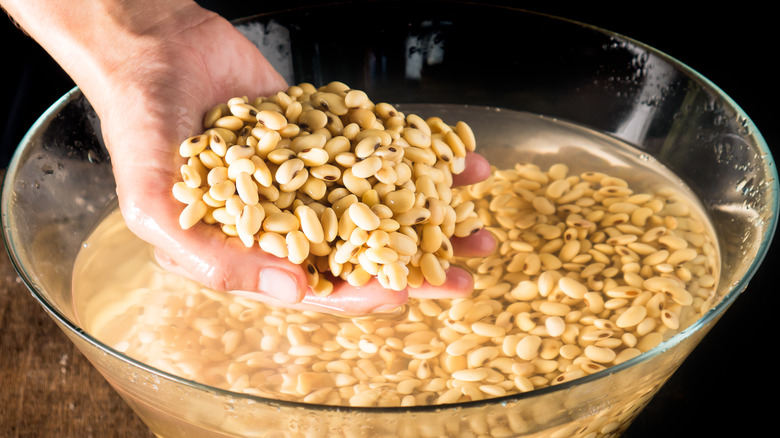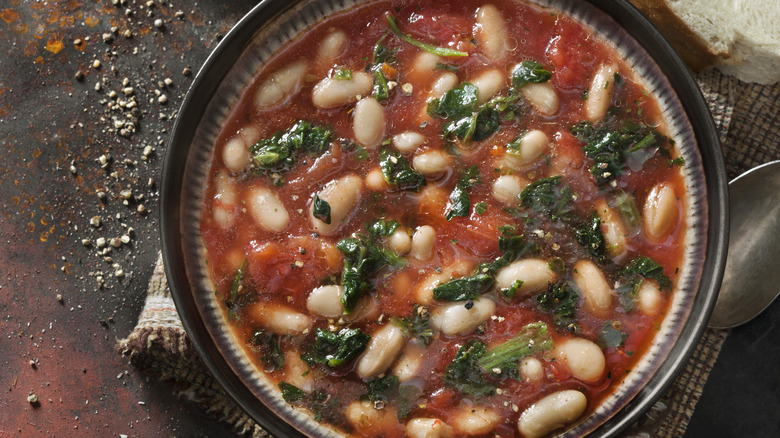It's Time You Started Brining Your Beans Before Adding Them To Stews
Have you ever wondered why your homemade stews sometimes end up with beans that are too hard, too mushy, or worse yet, both? If your beans never seem to have the right texture or simply always lack that certain je ne sais quoi, do yourself a favor and brine them in a salt solution before cooking. It's a simple step that'll completely up your bean game.
Whether you're whipping up beef stew or slow cooker baked beans, brining your beans before cooking produces tender, creamy, and more digestible beans. The science behind it is simple: The salt breaks down the pectin in the skins and outer layers of the beans. This allows the beans to absorb more water while maintaining their shape. The result is softened beans that take much less time to cook.
When dried beans go straight into a hot stew, the outsides can overcook before the insides are done. Brining helps hydrate the beans from the inside out, so they cook more evenly. No more unexpected crunch in your stew or mushy beans that disappear into the broth! As the salt is absorbed into the beans, it also gives them a richer, more savory flavor compared to if they were cooked directly in the stew.
Brining techniques for the ultimate bean stew
Brining your beans is straightforward and requires no special ingredients; just some water and salt will do the trick. You have complete control over the saltiness level: Add as much or as little as your taste buds desire. If you're not feeling terribly intuitive, start with no more than 1½ tablespoons of table salt per 4 quarts of water per pound of beans. Let the beans brine for 8-12 hours, then rinse them, and they'll be ready to be added to your stew.
Some seasoned cooks also like to add a pinch of baking soda to their salt solution. Baking soda, which is often used as a meat tenderizer, can further help break down some of the pectin in the bean skins, making them more tender. Being alkaline in nature, baking soda is also believed to help neutralize some of the sugars in beans that can cause gas and bloating after eating them, which makes the beans a bit easier to digest. If you decide to give this a try, add a tiny amount of baking soda to your brining liquid — no more than 2 teaspoons per pound of beans — to achieve the perfect tenderness without compromising the beans' natural flavor. Don't forget to rinse the beans thoroughly afterward just like with the salt-only solution, then your beans will be good to go into the pot and cook to perfection!

